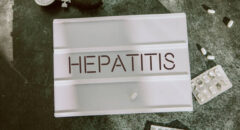
New, successful treatments are being introduced to help treat hepatitis C patients, however, various barriers could block many, including Black Americans, from receiving it.
It is estimated that there are millions of Americans who are affected by hepatitis C every year. Hepatitis C is estimated to affect 2.4 million people in the U.S., according to the Centers for Disease Control and Prevention. If this disease is left untreated, it can result in liver damage or failure. The CDC reports that Black Americans are twice as likely to contract the hepatitis C virus (HCV) than the general population. However, when it comes to proper testing and treatment, it becomes difficult for Black Americans to get the help they need.
While the CDC recommends that all adults (18 years old or older) should undergo a single hepatitis C test during their lifetime and that all pregnant women should undergo a hepatitis C test every time they become pregnant, it can be difficult for many of them to receive the necessary testing.
In a new article from the Post Gazette, it breaks down the issues many face when it comes to seeking treatment in Pittsburgh alone which includes, “a lack of transportation, insurance obstacles, state restrictions… and stigma associated with drug use.” Unfortunately, these trends are seen nationwide.
There is no doubt that the problems associated with Black Americans suffering from hepatitis C are exacerbated across the country. It is very challenging just to get a test performed let alone to get treatment, even after being diagnosed with the disease.
RELATED: Hepatitis C Treatments: A Comprehensive Guide
There is a lack of healthcare options available to people with disabilities in communities with large Black American populations, and in turn, this leads to a higher number of cases and severe complications as a result.
Only one-third of the people diagnosed with hepatitis C in America seek treatment for it, according to CDC data. As for the group that attempts to create a plan to treat the disease, they face a new variety of roadblocks.
In the Post Gazette article, Dr. Venkat explains that “...in a lot of the neighborhoods with high rates of hep C infections, there are not many medical clinics… Where do patients go to get their blood drawn, and how do they do it quickly?”
Around 23 percent of Americans with hepatitis C are Black, although Black Americans make up just 13 percent of the total population, according to the National Institute of Health.
Although roadblocks occur for many seeking treatment, it is important to become your advocate and understand which routes you can take to treat and potentially cure this disease.
If you're looking for a test for hepatitis C or considering treatment options, it's a good idea to find out what outlets are nearby. It is now possible to receive treatment at urgent care centers and pharmacies.
Additionally, most doctors' offices can provide antibody tests if you ask. It is important to note, however, that some insurance companies may not cover the test.
RELATED: Addressing the Price Tag: What to do About Rising Hep C Treatment Costs
In terms of treatment, there can be barriers placed by some states that prevent people from accessing it. Some states will deny you coverage if you are struggling with sobriety or if you have severe liver damage. Other limitations exist as well, and they negatively impact Black Americans. It is important to remember, however, that if you can access treatment, there is a high chance that you will survive and be cured.
Although many struggle with accessing help for this preventable and curable disease, it is important to understand that there are avenues you can take to get treatment.








